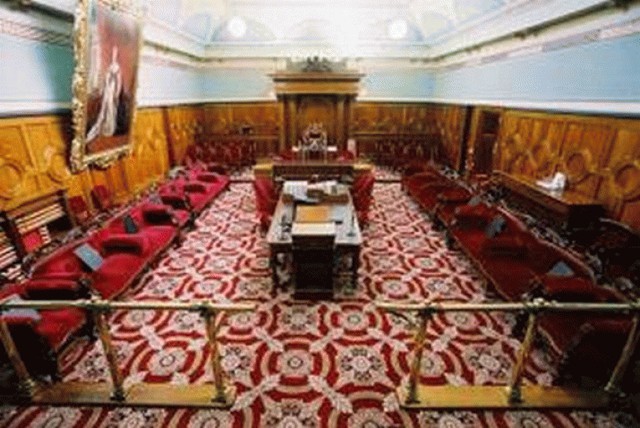What do the very different debates on same-sex marriage and adoption say about the Tasmanian Upper House?
Why was support for same-sex adoption so much higher than for same-sex marriage?
I found in my conversations with Upper House members that most know same-sex couples raising children and can see with their own eyes that these children are doing just fine.
They don’t know same-sex couples who are married.
They haven’t had the chance to attend a wedding between two men or two women.
They haven’t seen what being able to marry means to those who have been denied the opportunity.
On Thursday the State Upper House overwhelmingly passed a bill allowing same-sex couples to adopt the children relinquished by other people.
This removed the last vestige of discrimination against same-sex couples from existing state law and providing children in need of adoption with the widest possible pool of potential adoptive parents.
It was particularly important for children in the foster care of same-sex couples. Now they can be adopted by their foster parents, if it is in their best interests.
The vote was overwhelming, 10 to 3. Taking into account Rob Valentine, who was absent, and Jim Wilkinson, who was presiding, support was more like 12 to 3.
The questions that many people will now ask are these: why was support for same-sex adoption so much higher than for same-sex marriage, which was defeated by two votes in the Upper House last year, and will the marriage bill now fare better when it returns later this year?
After all, adoption involves the state creating a new family, not just a new legal relationship. We’re talking about the destiny of vulnerable children, not just the decision by two adults to commit to each other.
Also, popular support for same-sex adoption is not as high as it is for same-sex marriage. Surely, if the Upper House is happy for children to be raised by same-sex couples it should by happy for those children to have the benefits of married parents?
There are two obvious reasons adoption fared better than marriage.
The State Liberals had a conscience vote on adoption and not marriage. The majority voted for adoption equality. This holds out hope at least some would vote for marriage equality if they could.
The other obvious difference is that adoption is entirely a state issue and doesn’t raise the constitutional concerns that come with legislating for marriage which both the state and federal governments share responsibility for.
These concerns are being addressed in two reports to be released soon – one by the Tasmanian Law Reform Institute and one by the NSW Parliament.
I hope these reports will, at the least, move the state marriage debate forward by exploding the myth that marriage is solely a federal issue.
But the difference doesn’t end with politics and the law.
It extends to personal experiences.
I found in my conversations with Upper House members that most know same-sex couples raising children and can see with their own eyes that these children are doing just fine.
They don’t know same-sex couples who are married.
They haven’t had the chance to attend a wedding between two men or two women.
They haven’t seen what being able to marry means to those who have been denied the opportunity.
Hopefully, this will change when Australians begin to stream across the Tasman Sea to marry in New Zealand in the coming months.
The difference between the adoption and marriage votes is also about narrative.
The Tasmanian Upper House has been debating same-sex parenting since it first allowed same-sex step-parenting a decade ago.
Back then the same-sex adoption debate was as heated and high-profile as the marriage equality debate is now. But the heat has long-since subsided and the Upper House has gone on to give parenting status to the same-sex partners of women who have children through IVF (2009) and to allow same-sex surrogacy (2012).
The current adoption debate fits well into this broader narrative as a kind of bookend to a long law-reform process.
It’s no coincidence that two of the three MLCs who voted against the current adoption bill are relatively new to the chamber and have not had the same opportunities as others to explore the complex issues involved.
In contrast, marriage equality is a much newer issue for many MLCs and one that doesn’t yet fit as well into the Upper House’s legislative or intellectual history.
During the adoption debate some MLCs talked about the diversity of family forms, of which a same-sex couple with a child is one variation. They seemed very comfortable seeing it this way.
Last year they seemed much less comfortable with the idea that same-sex couples should be included into an existing institution like marriage that imposes a relatively fixed set of legal and cultural expectations on everyone who joins it.
In short, Upper House members seem more at ease with tolerating a perceived difference between same and opposite-sex couples than accepting no significant difference exists.
This will change, as it has in all the other places that have moved to marriage equality.
I find the change depends on legislators moving on from the kind of pigeon-holing identity politics that has previously shaped their attitudes to sexual minorities and grasping, instead, the growing aspiration of same-sex attracted people to be seamlessly integrated into the families and communities of which we are an indispensable part.
Whether this transformation happens quickly enough for Tasmania to lead the nation towards marriage equality remains to be seen.
Author: Rodney Croome
Publication: Tasmanian Times
Date: 1 July 2013

